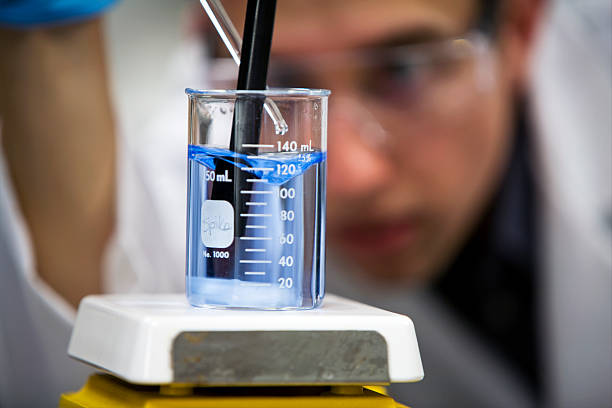As cities expand and industries grow, managing wastewater responsibly has never been more important. The role of a reliable sewage treatment plant supplier becomes vital in ensuring clean water reuse and environmental protection. But what makes a great manufacturer stand out in this increasingly competitive sector? Let’s explore.
Why Sewage Treatment Matters More Than Ever
Sewage treatment plants (STPs) are not just about waste disposal — they’re about sustainability. Every drop of water we recycle reduces pressure on freshwater sources. According to the U.S. Environmental Protection Agency (epa.gov), modern wastewater treatment can recover up to 90% of reusable water, reducing the strain on natural ecosystems.
In India and around the world, urbanization has led to an exponential rise in wastewater generation. Without proper treatment, this sewage can contaminate rivers, groundwater, and even soil fertility. That’s where efficient, well-engineered sewage treatment systems come into play — offering not just filtration but real environmental impact.
What Does a Sewage Treatment Plant Do?
A sewage treatment plant processes domestic or industrial wastewater, removing contaminants through physical, biological, and chemical means. Think of it as a multi-stage cleaning process — from filtering large solids to neutralizing bacteria and chemicals — transforming wastewater into water that’s safe for reuse or discharge.
Core Stages of a Sewage Treatment Process
- Primary Treatment: Removes solid waste through sedimentation and screening.
- Secondary Treatment: Uses biological processes, such as aeration, to break down organic matter.
- Tertiary Treatment: Purifies the water further by removing remaining nutrients, pathogens, and chemicals.
Modern technologies like Moving Bed Biofilm Reactors (MBBR) and Sequential Batch Reactors (SBR) have made treatment plants more efficient, compact, and energy-saving.
Qualities of a Reliable Sewage Treatment Plant Manufacturer
Choosing the right manufacturer is crucial. You need more than just equipment — you need a long-term partner who understands compliance, engineering, and sustainability. Leading companies like Plizma Technology have set a high bar for quality, innovation, and customer service in the wastewater management industry.
Here’s what to look for in an STP manufacturer:
- Technical Expertise: Look for a company with proven engineering capabilities and experience across diverse industries.
- Custom Solutions: Every site is unique; a good manufacturer will tailor designs for specific flow rates and waste compositions.
- After-Sales Support: Maintenance and periodic audits are essential for ensuring efficiency and compliance.
- Certifications & Compliance: Ensure the company adheres to standards set by organizations like the Central Pollution Control Board (CPCB) and ISO.
Industrial Applications of Sewage Treatment Plants
Sewage treatment plants aren’t limited to municipal use. They play a critical role in various sectors, helping industries meet legal and environmental obligations while saving on water costs.
Common applications include:
- Residential and commercial complexes
- Hospitals and healthcare facilities
- Hotels and resorts
- Textile, food, and chemical industries
According to the Central Pollution Control Board (cpcb.nic.in), India produces more than 72,000 million liters of wastewater daily, but only 28% is effectively treated. This highlights an urgent need for advanced, scalable treatment systems that can meet future urban demands.
Emerging Trends in Sewage Treatment Technology
The industry is rapidly evolving, embracing automation and eco-friendly methods. From IoT-enabled monitoring to zero-liquid discharge (ZLD) systems, manufacturers are redefining how wastewater management integrates with sustainability.
- Membrane Bioreactor (MBR): Combines filtration and biological treatment for compact, high-efficiency systems.
- Smart Monitoring: IoT and AI technologies enable real-time data tracking, helping operators improve performance.
- Energy Recovery: Some advanced systems even generate biogas during treatment, reducing overall energy costs.
FAQs About Sewage Treatment Plants
1. What factors affect the cost of a sewage treatment plant?
Plant capacity, technology type, and material quality all influence cost. Customized designs and automation can also impact overall pricing.
2. How often should a sewage treatment plant be maintained?
Routine maintenance should be done monthly, with a comprehensive inspection at least once a year to ensure efficiency and compliance.
3. What’s the difference between an STP and an ETP?
An STP treats domestic wastewater, while an Effluent Treatment Plant (ETP) handles industrial waste containing chemicals or toxins.
4. Can treated sewage water be reused?
Yes, treated water can be reused for gardening, flushing, cooling towers, or even industrial applications after tertiary treatment.
Final Thoughts
Sustainable water management begins with responsible treatment. A trusted sewage treatment plant manufacturer not only provides systems but also ensures that every drop of water is reused efficiently. As urban centers continue to expand, investing in quality wastewater solutions isn’t just smart — it’s essential for a cleaner, greener future.





